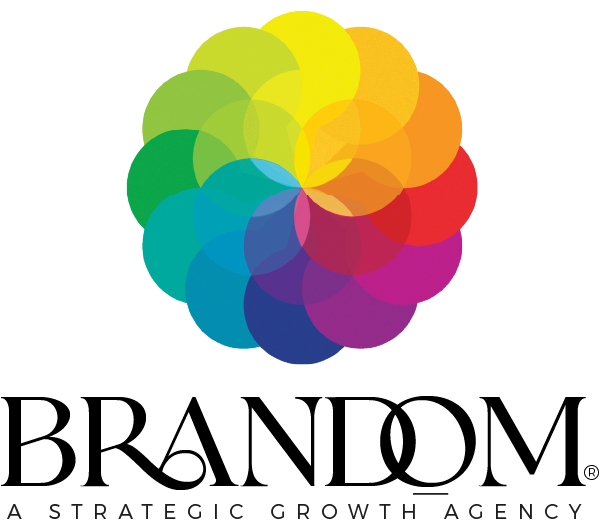Maintaining Brand Integrity in the Digital Age
The new year is a time of renewal, an opportunity to refocus and ensure that every aspect of your business aligns with your core vision. However, in an era flooded with distractions, maintaining brand integrity is more challenging than ever. Business leaders must navigate a complex landscape where their message can easily get lost in the noise.
Technology plays a crucial role in this journey. While it can amplify your reach and streamline operations, it also has the potential to dilute your message if not used strategically. The key lies in leveraging technology not for volume but for clarity, ensuring your brand remains authentic, consistent, and impactful.
The Challenge: A Digital Fog Threatening Brand Integrity
The Overload of Information
In today’s digital age, information flows at an unprecedented speed. Social media, emails, advertisements, chat applications, and other communication tools constantly compete for attention. While these platforms offer valuable opportunities, they also pose a risk—diluting brand integrity and confusing your audience.
The Risk of Fragmented Messaging
If your brand’s message is not carefully managed, different channels may communicate inconsistent stories. This results in:
- Loss of audience trust
- Reduced brand recognition
- Conflicting perceptions about your brand’s value
The challenge isn’t just standing out—it’s ensuring that your message remains consistent, recognizable, and aligned with your core mission.
The Solution: Leveraging Technology to Strengthen Brand Integrity
Step 1: Simplify and Streamline Communication
The first step to maintaining brand integrity is reducing clutter. Many businesses use multiple platforms without a unified strategy, leading to fragmented messaging. Here’s how you can simplify:
Consolidate Communication Channels
Use project management tools like Trello, Asana, or Notion to create a centralized hub for brand messaging. This ensures consistency across different platforms and prevents miscommunication.
Establish a Brand Bible
A brand bible serves as a reference for all communications, ensuring that every message aligns with your core values and tone of voice. This document becomes invaluable when integrating automated systems or AI-driven content creation.
Step 2: Utilize Data to Refine Your Brand Strategy
Data-Driven Decision Making
Technology provides businesses with powerful analytics tools that can reveal insights about audience engagement, sentiment, and preferences. Instead of guessing what works, leverage data to fine-tune your messaging.
- Identify which content resonates with your audience
- Track engagement trends to adjust your approach
- Ensure your communication strategy aligns with audience expectations
By making decisions based on data rather than assumptions, you can safeguard brand integrity while continuously refining your message.
Step 3: Automate Without Losing the Human Touch
Automation can help businesses maintain brand integrity by ensuring consistency in customer interactions. However, it should never replace genuine human engagement. The right balance includes:
- Automated Scheduling: Use tools like Calendly to streamline meeting coordination while maintaining a personal touch.
- AI-Powered Email Sequences: Set up automated responses that still feel authentic and personalized.
- Chatbots with a Human-Like Experience: Use AI to handle common inquiries, ensuring timely responses without sacrificing authenticity.
When used wisely, automation eliminates repetitive tasks, freeing up time for meaningful engagement that strengthens brand trust.
Step 4: Foster a Culture of Brand Integrity
Educate Your Team
Your employees are the ambassadors of your brand. Ensuring they understand and align with your brand’s mission is crucial. Invest in:
- Workshops and training on brand messaging
- Clear guidelines on tone, voice, and values
- Collaborative platforms for internal communication consistency
When everyone in your company understands and upholds brand integrity, it naturally translates into stronger customer relationships.
Step 5: Keep Technology Centered Around People
Technology should serve as a tool to reinforce human connection—not replace it. A brand’s strength lies in the emotional connection it fosters with its audience. Here’s how to keep brand integrity at the forefront:
- Use AI to enhance personalization, not generic automation
- Frame technology advancements in human-centered language (e.g., “AI helps us serve you better” instead of “We use AI to automate tasks”)
- Ensure messaging resonates with your audience’s emotions and needs
The Future: Brand Integrity as the Foundation of Business Growth
Maintaining brand integrity in a digital-first world is not about resisting technology—it’s about using it with intention. Business leaders who successfully integrate digital tools while preserving authenticity will stand out, build trust, and foster lasting relationships.
As we move forward into the new year, commit to:
- Simplifying communication for clarity
- Using data insights to refine messaging
- Automating where necessary without losing authenticity
- Educating teams to become brand advocates
- Prioritizing human connection over digital noise
By embracing technology with a strategic approach, you ensure that brand integrity remains at the heart of everything you do. This not only strengthens your brand’s reputation but also positions you as a leader in an ever-evolving digital world.
Remember, the brands that thrive are not those that shout the loudest but those that communicate with clarity, purpose, and integrity. Let this be the year where your brand not only stands out but resonates deeply with those who matter most—your audience.
